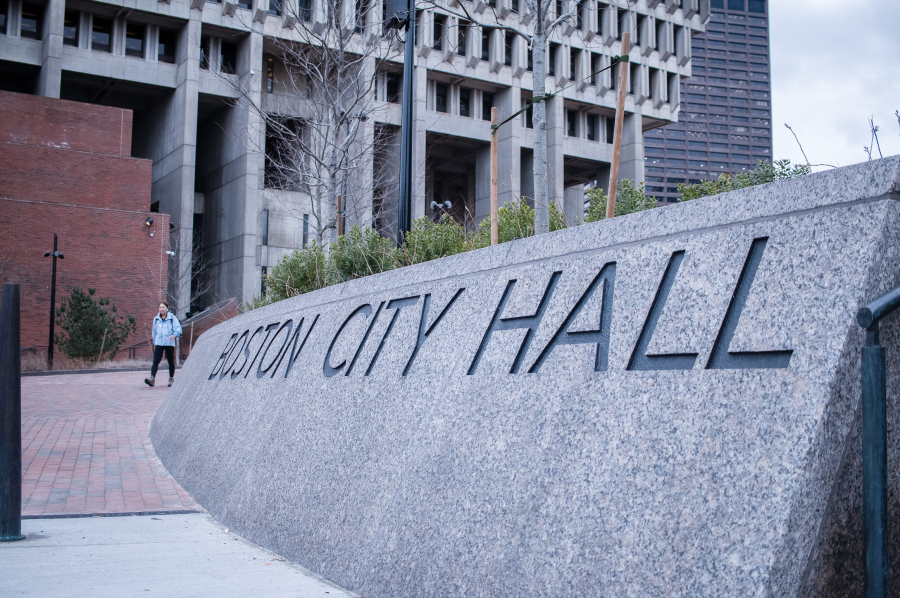Mayor Michelle Wu recently announced two major steps to enhance energy-efficient buildings and infrastructure in the City of Boston . According to the City of Boston website, the city’s building sector produces almost 70 percent of greenhouse gas. Hence, limitations and requirements for extensive renovation and construction projects were pressing. Greenhouse gas emission has contributed to exacerbating the city’s local air pollution and global climate change.
Mayor Wu proposed implementing an optional green building code that would limit the usage of fossil fuels, reducing the heating and cooling demand and making it a requirement to install solar (1). The specialized code contains three ways to comply: Zero Energy, All-Electric or Mixed-fuel buildings.
If the city council passes the specialized code, beginning in January 2024, all multifamily housing above 12,000 square feet must meet one of the aforementioned paths and Passive House certification. If the resident chooses the Zero Energy path, the buildings must adopt renewable energy options. If it is All-Electric, the property must adhere to the restrictions not to use any fossil fuels, except for backup generators, on-site automobiles and outside equipment fueling. Lastly, if the property opts for the Mixed-fuel option, houses can use gas or fossil fuels with reservations.
Additionally, Wu will also get affordable housing green retrofits. To support the existing properties and help them become more energy efficient, Wu announced the Mayor’s Office of Housing’s new Large Green Building Green Energy Retrofits Program. The City of Boston’s website states each unit will get up to $50,000 for “deep energy retrofits for income-restricted buildings with 15 or more units in Boston” (1). In addition to this, the program also offers $10,000 to building owners. It assists them with understanding the importance of energy-efficient buildings and helps them lay out the roadmap to achieve the goal.
Sheila Dillon, Chief of Housing, said in an official press statement published on the city’s government Website that investing more in retrofitting, especially in income-restricted housing, makes the City of Boston more resilient. “The new Large Building Green Energy Retrofits Program is a comprehensive effort to improve the energy efficiency and environmental sustainability of existing affordable housing in the City of Boston,” Dillon said in a press release to boston.gov (1).
There are several measures outlined for retrofitting. Some of them include installing energy-efficient appliances, preventing heat loss through good insulation, replacing dated appliances and systems with new ones, installing solar panels and improving doors and windows of the house to be more energy-efficient.
According to city officials, the green building code will be instrumental in building the city’s decarbonization policies and making infrastructure more sustainable. “Building a Green New Deal city means improving our existing infrastructure as well as investing in future resilient development,” said Mayor Wu in a press release to boston.gov (1).
Last week, Wu visited the Brian J. Honan Apartments in Allston to officially outline her plans for announcing the Green New Deal’s objectives that will benefit Boston in becoming a Green New Deal city. Councilor Liz Breadon thanked the Wu administration for taking these steps, which will help improve the area’s air quality and implement innovative solutions to climate change.
Implementing the specialized code supports a Green New Deal strategy to accomplish Boston’s environmental and economic justice goals, upgrading affordable housing to ensure maximum efficiency. By ensuring new and existing structures are built as efficiently as possible, the City of Boston will be able to reduce emissions from the building industry, thereby increasing housing affordability and contributing to the city’s objective of becoming carbon neutral by 2050.
Sources:
1. https://www.boston.com/news/environment/2023/03/16/mayor-wu-energy-efficiency-green-new-deal/
2. https://www.boston.gov/news/strategies-enhance-energy-efficiency-boston
3. https://www.wbur.org/news/2023/03/16/boston-housing-energy-efficient-building-code
Mayor Wu proposed initiatives for energy-efficient buildings
March 24, 2023
About the Contributor
Kaushar Barejiya, News Editor





















































